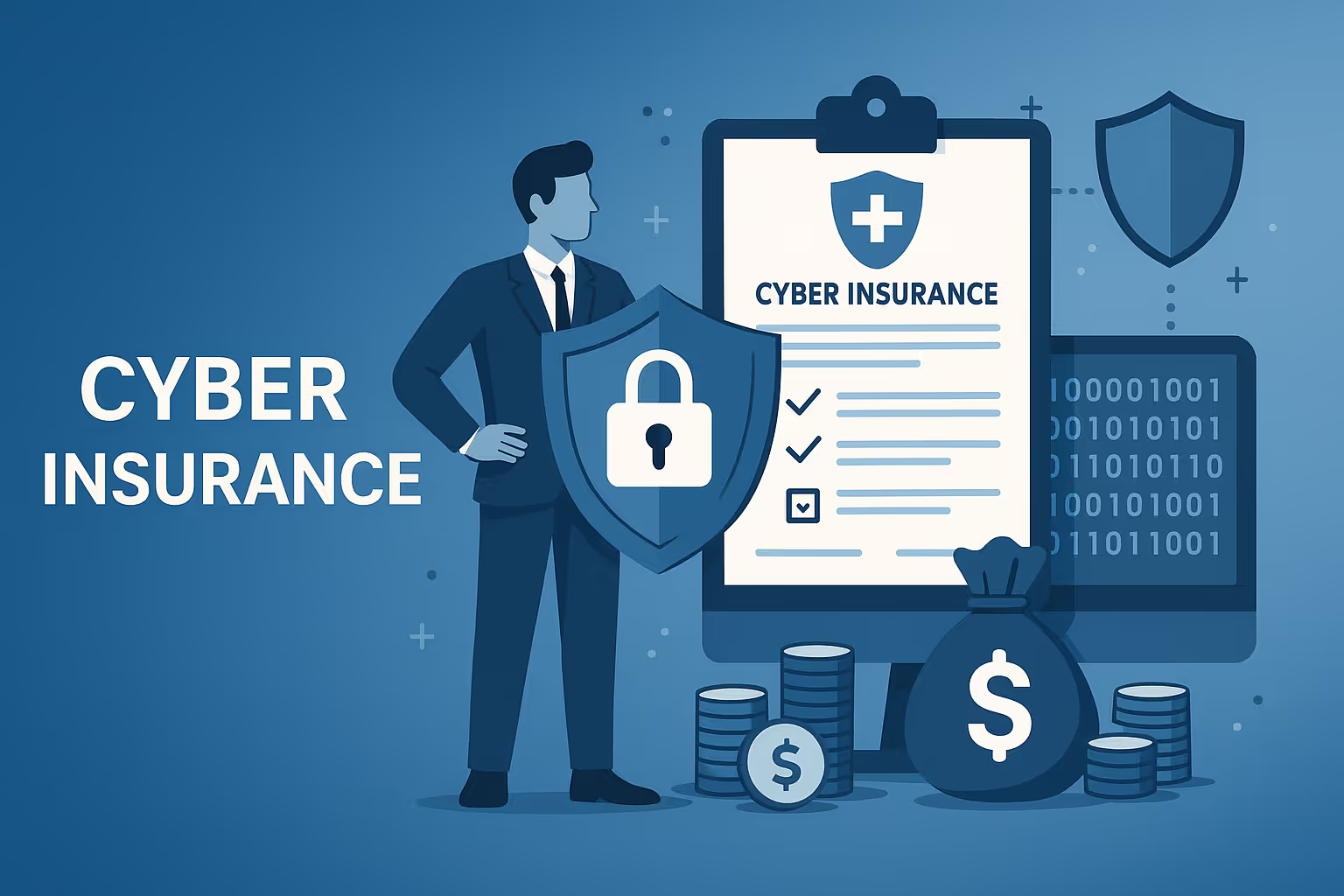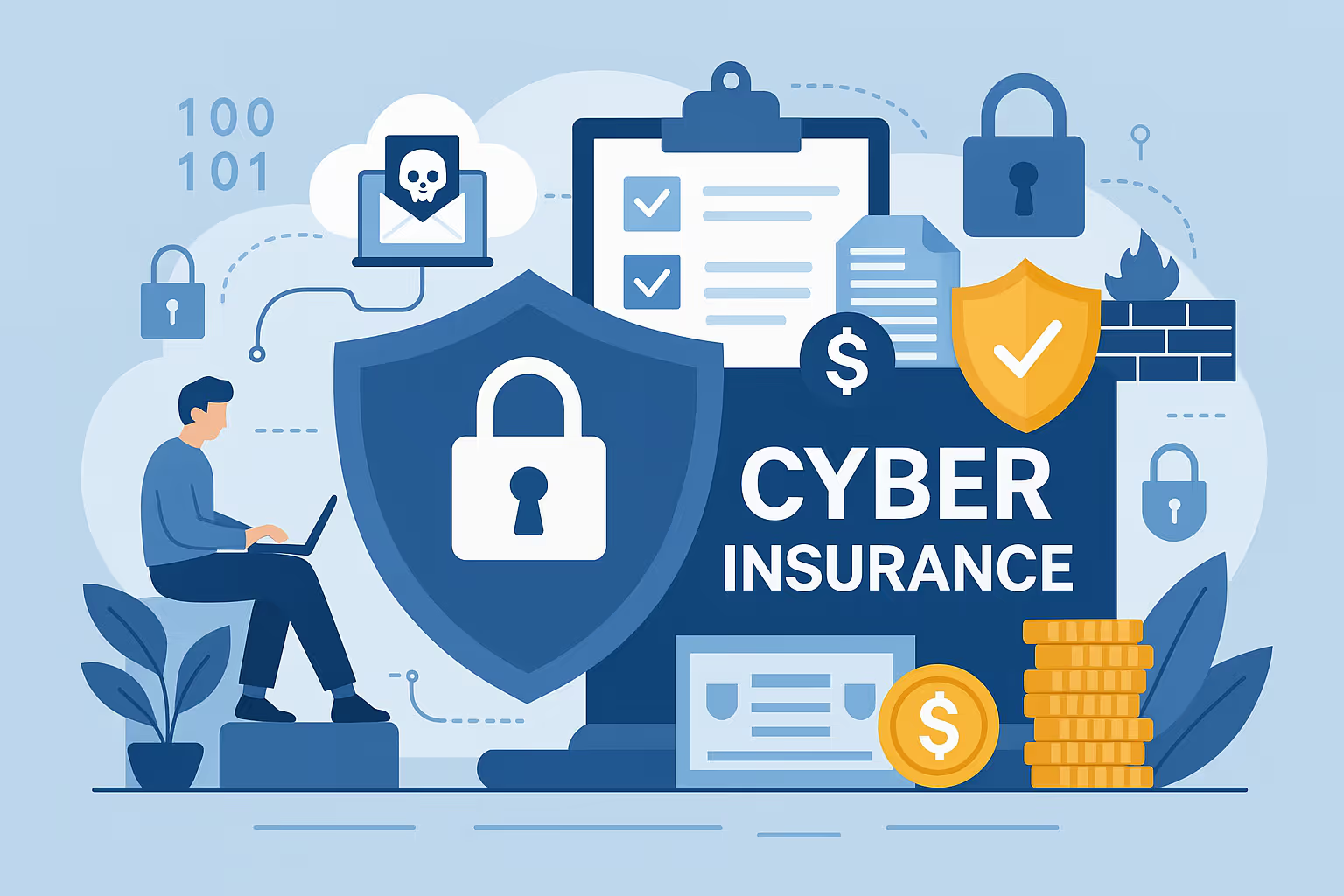
How to get...

Who provides...


Why need...
The U.S. Healthcare industry faces unique cyber risks due to the extensive use of electronic health records and interconnected medical systems. These risks not only endanger patient safety but also expose facilities to significant financial, legal, and reputational consequences. With cyber insurance for Healthcare in the United States and cyber insurance for Healthcare, organizations secure crucial support in mitigating these challenges.
Cyber insurance for Healthcare plays a vital role by covering costs related to incident response, regulatory fines, legal fees, and recovery processes. It also provides access to specialized expertise in managing cyber crises, ensuring that healthcare facilities can restore services swiftly while protecting patient safety and maintaining industry compliance.
Build Security with OCD Tech That Meets the Standard — and Moves You Forward
Contact Us
Cyber insurance sets HIPAA & cybersecurity benchmarks. Underwriting checks US healthcare risks to safeguard patient data. Key for compliance.
Secure Your Business with Expert Cybersecurity & Compliance Today
Contact Us


Differences by State...
Organizations in the Healthcare sector must navigate state-specific variations in regulatory requirements that influence how they evaluate, purchase, and maintain their cyber insurance policies. These differences affect coverage limits, premiums, compliance mandates, and risk management practices when investing in cyber insurance for Healthcare.
The differences mean that Healthcare organizations must assess the local compliance obligations and cybersecurity maturity before selecting a policy. For example, evaluating a policy in New York would involve verifying that the provider meets strict state compliance standards, which can influence both incident response and overall premium pricing.
When purchasing a policy, healthcare providers should:
Ultimately, a nuanced understanding of these state differences empowers Healthcare organizations to secure robust and compliant cyber insurance policies, balancing cost, risk management, and coverage outcomes effectively.

Compliance & Frameworks...
For organizations in the U.S. Healthcare sector, achieving robust cyber defenses begins with aligning to NIST CSF (National Institute of Standards and Technology Cybersecurity Framework) and ISO 27001. These frameworks establish structured approaches to identifying and managing cybersecurity risks—very influential when applying for cyber insurance for Healthcare. They help underwriters assess an organization’s maturity in areas like risk assessment, incident response, and continuous improvement.
Additionally, adherence to these frameworks demonstrates an organization’s commitment to achieving the highest data security standards, which can have a favorable impact on premium costs and eligibility. Insurers often look for detailed documentation of cybersecurity policies and practices aligned with these frameworks.
Healthcare organizations must comply with strict data privacy and security requirements. HIPAA (Health Insurance Portability and Accountability Act) is the cornerstone regulation that mandates the protection of patient health information. Non-compliance with HIPAA can lead to significant fines and penalties, which in turn increase risk exposure and insurance premiums.
Similarly, if an organization interacts with financial data or offers combined services, compliance with GLBA (Gramm-Leach-Bliley Act) is essential. Meeting these regulations shows insurers that robust safeguards are in place, reducing potential losses from breaches.
Beyond federal mandates, healthcare organizations must also address state-level regulations. For example, states like New York impose guidelines through NYDFS (New York Department of Financial Services), which require stringent cybersecurity controls and regular reporting of cyber incidents. Meanwhile, the CCPA (California Consumer Privacy Act) influences how companies manage consumer data, even if they are primarily in the healthcare space.
These state mandates further shape underwriting requirements by enforcing localized standards that may elevate the compliance bar, directly impacting premium calculation. Demonstrating full compliance with these laws may allow healthcare organizations to secure more competitive terms on their cyber insurance policies.
Insurers review your adherence to NIST CSF, ISO 27001, HIPAA, GLBA, NYDFS, and other applicable mandates as indicators of your cybersecurity posture. A robust compliance program not only lowers the risk profile but can also reduce premium costs, as it minimizes potential breach impacts. In the realm of cyber insurance for Healthcare, demonstrating strong compliance ensures that both the organization and its insurers are better prepared to manage and mitigate the repercussions of cyber threats.
The clarity in compliance also supports transparency in underwriting assessments, enabling cybersecurity specialists to negotiate policies that better reflect the organizational risk and investment in security controls.

Audit. Security. Assurance.
IT Audit | Cybersecurity | IT Assurance | IT Security Consultants – OCD Tech is a technology consulting firm serving the IT security and consulting needs of businesses in Boston (MA), Braintree (MA) and across New England. We primarily serve Fortune 500 companies including auto dealers, financial institutions, higher education, government contractors, and not-for-profit organizations with SOC 2 reporting, CMMC readiness, IT Security Audits, Penetration Testing and Vulnerability Assessments. We also provide dark web monitoring, DFARS compliance, and IT general controls review.
Contact Info
.svg)
OCD Tech
.svg)
25 BHOP, Suite 407, Braintree MA, 02184
.svg)
844-623-8324
.svg)
https://ocd-tech.com
Follow Us
Videos
Check Out the Latest Videos From OCD Tech!
Services
SOC Reporting Services
– SOC 2 ® Readiness Assessment
– SOC 2 ®
– SOC 3 ®
– SOC for Cybersecurity ®
IT Advisory Services
– IT Vulnerability Assessment
– Penetration Testing
– Privileged Access Management
– Social Engineering
– WISP
– General IT Controls Review
IT Government Compliance Services
– CMMC
– DFARS Compliance
– FTC Safeguards vCISO